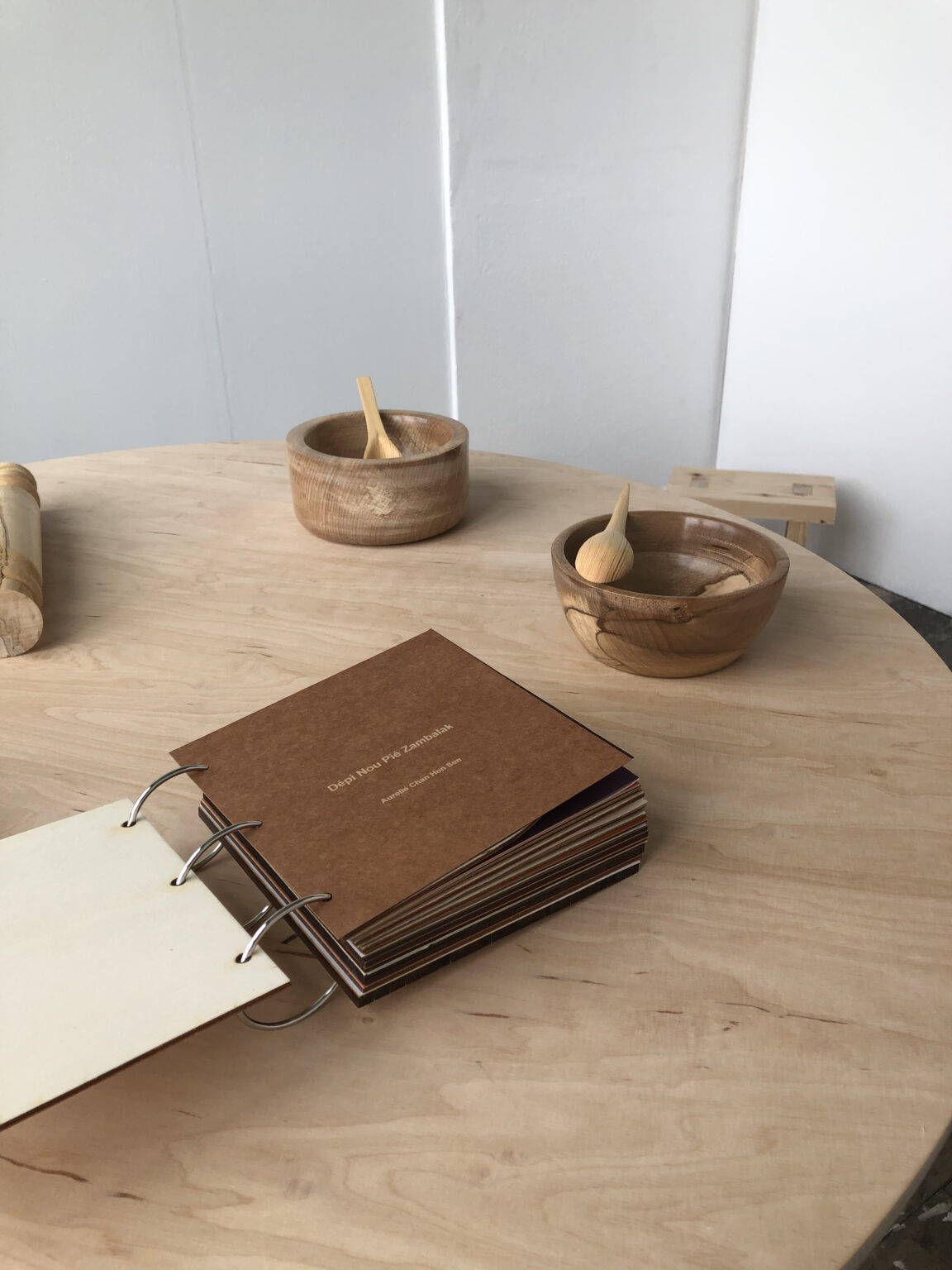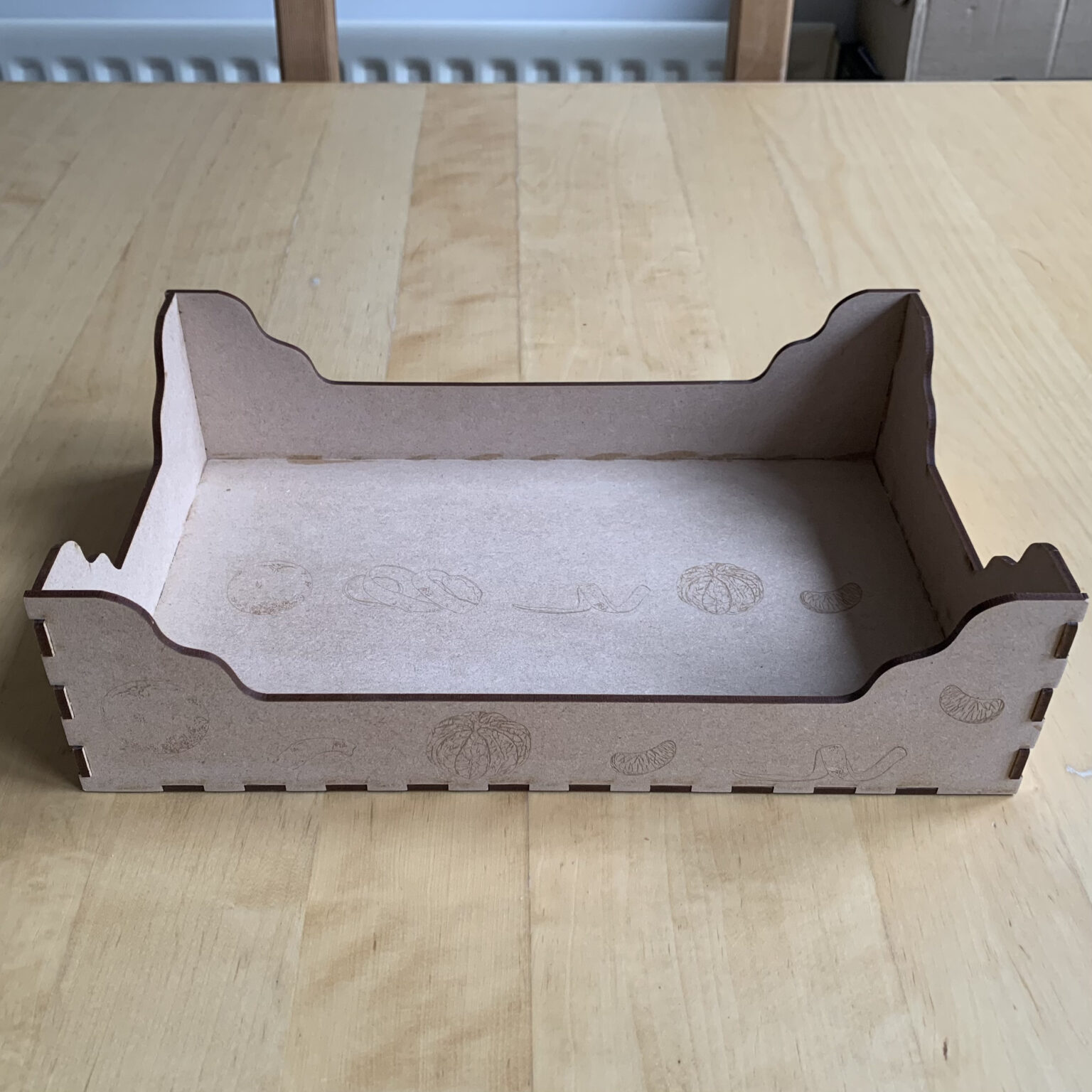Aurelie Chan Hon Sen (She/Her)

Aurelie Chan Hon Sen is a maker and writer from Mauritius, currently based in Glasgow. She illustrates, makes, and writes with evocative objects to unfold memories and use the objects to merge past and present time frames. Her decolonising strategies manifest the visual and embodied forms of knowledge and the language hybridity and diversity that root indigenous and diasporic identities.

At The Table
This project takes the forms an artist’s book and an installation. Both realisations foreground the objects that form the backbone of the kitchen and situates the kitchen as the heart of the home, the place where we nourish ourselves physically and emotionally.
In the artist’s book, titled “Dépi Nou Pié Zambalak”, I connect with the voices of other creatives who have a shared understanding and experiences of living in a diaspora. It expresses moments of reminiscence that take the form of object and food recipes, lyrical poetry, prose and illustration.
The installation animates the stories narrated in the book and vocalises the labour of craftsmanship. It was important to have a tactile rendering of the objects to demonstrate the embodied knowledge passed down in my family, and share the objects that form our crafted history. It also represents the power of these simple objects in the lives of the other creatives and how they bring people together. My grandparents stayed silent about their life in China and their journey to Mauritius. But building things together made up for the silence. Making is a relaying of embodied memory; it is an extension of each other; we leave our traces in the objects we make. I realise making is a way of working through the generational trauma of displacement. The body stores blocked, stagnant information and energy from trauma. For us, making is an emotional and physical release. Objects will incessantly transport me to the moments shared with my grandparents; to home. Objects will also be the constants that allow me to continue our story.
Project Links

Dépi Nou Pié Zambalak
“Dépi Nou Pié Zambalak” is an artist’s book in which I connect with the voices of other creatives who echo each other’s experiences of living in a diaspora. It expresses moments of reminiscence that take the form of object and food recipes, lyrical poetry, prose and illustration. The works are based on experiential understanding and memories of our families’ kitchens, and depict personal anecdotes that act as way-findings to self-identity. It is a platform for us to foreground the language diversity and indigenous ways of life of our histories to animate the decolonisation discourse within the arts. The book is made of engraved wooden and paper pages. The physical, textured marks of the texts are equally important to their content. The book is not only a reading experience, but also a handling experience. It highlights the oral, visual and tactile languages of my inheritance as well as the literary forms of expressions that capture the memories guiding my practice. It is an alternative access to history from generations to generations.
Thank you to Nav Ujoodha, Cat Dunn, Vinny, and Rudy Kanhye for their contributions.






























